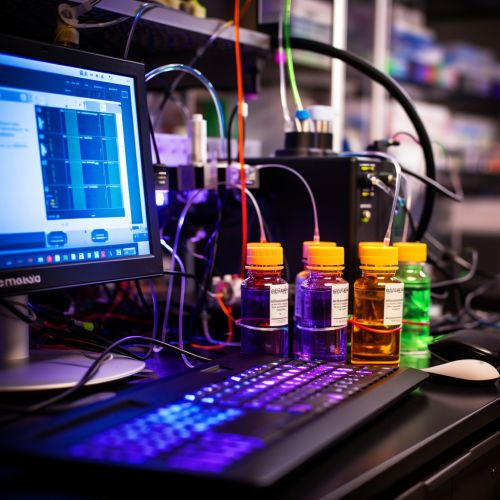Metabolic Biomarker
Introduction
Metabolic biomarkers are measurable biochemicals in biological systems that can be utilized as indicators of physiological and pathological processes, or responses to a therapeutic intervention. These biomarkers are often used in metabolomic studies, which involve the systematic identification and quantification of the metabolome of a biological system at a specific point in time. Metabolic biomarkers can be found in various biological samples such as blood, urine, and tissue, and their levels can be influenced by a variety of factors including age, diet, disease state, and environmental factors.


Types of Metabolic Biomarkers
There are several types of metabolic biomarkers, each with their own unique properties and applications. These include:
Endogenous Metabolic Biomarkers
Endogenous metabolic biomarkers are naturally occurring metabolites in the body that can be measured in biological samples. These biomarkers can provide valuable information about the body's physiological state and can be used to detect and monitor diseases.
Exogenous Metabolic Biomarkers
Exogenous metabolic biomarkers are metabolites that are not naturally present in the body, but are introduced through external sources such as drugs, food, or environmental exposure. These biomarkers can be used to monitor the body's response to these external factors.
Pharmacodynamic Metabolic Biomarkers
Pharmacodynamic metabolic biomarkers are used to measure the response of a biological system to a drug or therapeutic intervention. These biomarkers can provide information about the efficacy and safety of a treatment.
Predictive Metabolic Biomarkers
Predictive metabolic biomarkers are used to predict the risk or progression of a disease. These biomarkers can be used in preventative medicine to identify individuals at high risk of developing a disease.
Applications of Metabolic Biomarkers
Metabolic biomarkers have a wide range of applications in various fields including clinical diagnostics, drug development, and environmental monitoring.
Clinical Diagnostics
In clinical diagnostics, metabolic biomarkers are used to detect and monitor diseases. For example, glucose levels in the blood can be used as a metabolic biomarker for diabetes mellitus. Elevated levels of certain amino acids in the blood can be used as metabolic biomarkers for inborn errors of metabolism such as phenylketonuria.
Drug Development
In drug development, metabolic biomarkers are used to assess the safety and efficacy of new drugs. For example, changes in the levels of certain metabolites in the body can indicate the effectiveness of a drug or its potential side effects.
Environmental Monitoring
In environmental monitoring, metabolic biomarkers are used to assess the impact of environmental factors on human health. For example, exposure to certain chemicals can result in changes in the levels of specific metabolites in the body, which can be used as metabolic biomarkers of exposure.
Challenges in Metabolic Biomarker Discovery and Validation
Despite the potential of metabolic biomarkers in various applications, there are several challenges in their discovery and validation. These include the complexity of the metabolome, the influence of various factors on metabolite levels, and the need for robust and reproducible analytical methods.
Complexity of the Metabolome
The metabolome, which is the complete set of metabolites in a biological system, is highly complex. This complexity can make it difficult to identify specific metabolic biomarkers.
Influence of Various Factors on Metabolite Levels
The levels of metabolites in a biological system can be influenced by a variety of factors including age, diet, disease state, and environmental factors. This can make it challenging to identify specific metabolic biomarkers.
Need for Robust and Reproducible Analytical Methods
The discovery and validation of metabolic biomarkers require robust and reproducible analytical methods. However, there are challenges in developing these methods due to the complexity of biological samples and the need for high sensitivity and specificity.
Future Perspectives
Despite these challenges, the field of metabolic biomarker discovery and validation is rapidly advancing with the development of new analytical techniques and bioinformatics tools. These advancements are expected to facilitate the discovery of new metabolic biomarkers and their application in various fields.
